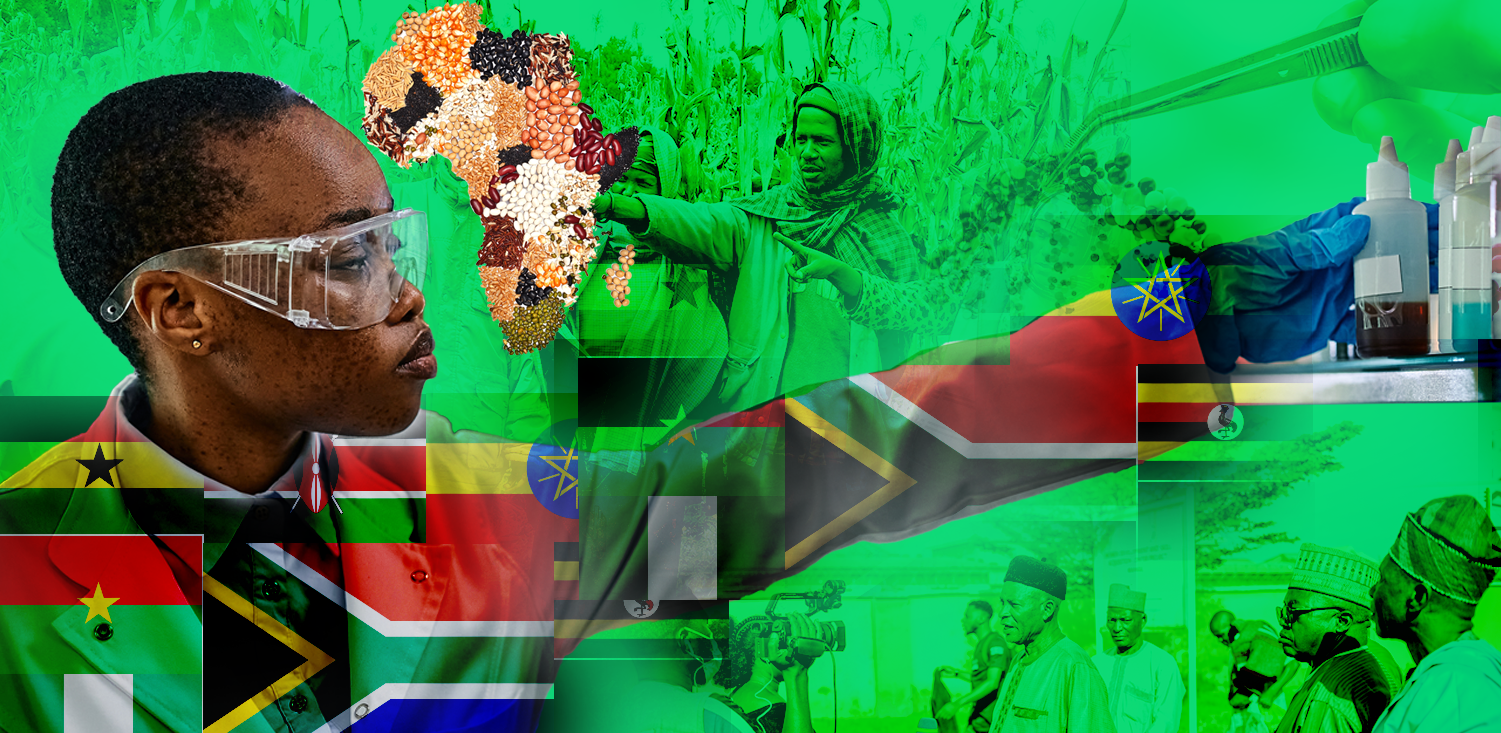Latest GM & Biosafety Resources
26 August 2025
We don’t need genome editing to ensure Africa’s food sovereignty
Will stringent regulation safeguard Africa’s food systems? Across Africa, powerful corporate, donor, and government interests are driving a rapid push to deregulate genome editing in agriculture. Countries including Nigeria, Kenya, Ghana, Malawi, Ethiopia, and Burkina Faso have adopted product-based guidelines that exempt many genome-edited crops from GMO regulation if no foreign DNA is present in […]
READ22 October 2024
Resistance against “bogus” drought tolerant (DT) maize in South Africa: a snapshot of two decades of activism
UPDATE: After nine years of arduous litigation by the ACB, a full bench of the Supreme Court of Appeal on 22 October 2024 set aside several layers of decision-making regarding the approval of the application by Monsanto, now Bayer, for commercial release of its drought-tolerant genetically modified maize, MON87460. 28 June 2023 UPDATE: In 2023, […]
READ25 September 2024
New Genetic Engineering Technologies in Food and Agriculture in Africa
Over the past few years, the ACB has produced and shared several briefing papers concerning new genetic engineering technologies for food and agriculture. Building on this work, and in light of the major deregulation push globally concerning genome editing, including in several countries in Africa, we have produced two updated factsheets on this dangerous distraction […]
READ6 September 2024
La biotechnologie de la « boîte noire » – Intégration de l’intelligence artificielle à la biologie de synthèse
S’attaquer aux risques, au battage médiatique et aux inégalités qui sous-tendent la biologie générative Click here for the English version. Haga clic aquí para la versión en español. Le Centre africain pour la biodiversité (ACB), en collaboration avec le Réseau Tiers-monde (TWN) et l’ETC Group, a produit une note d’information opportune avant la 16e réunion […]
READ6 September 2024
La caja negra de la biotecnología – Integración de la inteligencia artificial con la biología sintética
Afrontar los riesgos, exageraciones y desigualdades de la biología generativa Click here for the English version. Cliquez ici pour la version française. El Centro Africano para la Biodiversidad (ACB), junto con la Third World Network (TWN) y el ETC Group, han elaborado un oportuno documento informativo de cara a la 16ª reunión de la Conferencia […]
READ3 September 2024
‘Black Box’ Biotechnology – Integration of artificial intelligence with synthetic biology
Addressing the risks, hype, and inequities underpinning generative biology Haga clic aquí para la versión en español. Cliquez ici pour la version française. The African Centre for Biodiversity (ACB), together with Third World Network (TWN) and ETC Group, have produced a timely briefing paper ahead of the 16th meeting of the Conference of the Parties […]
READ13 May 2024
GMOs: two decades of laying out the facts
Even though first-generation genetically modified (GM) agricultural crops have faced significant setbacks and outright failures over the last two decades, a new push for second-generation GM crops has emerged. Despite the destructive role of industrial agricultural expansion in biodiversity loss and human health, we are seeing a resurgence in its momentum, with false solutions such […]
READ10 May 2024
Expansion of gene drive mosquito projects in Africa
International and national biosafety regulations are urgently needed, including the right to say no By Sabrina Masinjila, African Centre for Biodiversity (ACB) research and advocacy officer Masinjila can be seen making a statement on behalf of the Convention of Biological Diversity Alliance (CBDA), calling for Parties to support the ongoing work of the Multidisciplinary Ad […]
READ5 May 2023
UNSAFE GM WHEAT TO ENTER SOUTH AFRICA’S FOOD SYSTEMS
DISASTER CAPITALISM, BIOTECH INDUSTRY IN DECLINE & INSTRUMENTALISATION OF WHEAT IN AFRICA In August 2022, the South African government approved a GM wheat variety HB4 for importation as food, feed, and for the purposes of industrial food and feed processing, following Nigeria’s approval in July. Since then, Argentina and Brazil have been the only two […]
READ17 March 2023
2,4-D GM MAIZE AND THE REGULATORY ANOMALIES REGARDING GMOs AND ASSOCIATED PESTICIDES
The case for categorising 2,4-D as a highly hazardous pesticide in South Africa In December 2019, three genetically modified (GM maize) varieties developed by Corteva (formally Dow AgroSciences) – genetically engineered to tolerate the toxic and highly hazardous chemical 2,4-D – were approved for commercial cultivation in South Africa, despite many long years of opposition […]
READ3 March 2023
GLOBAL BIODIVERSITY FRAMEWORK AND SYNTHETIC BIOLOGY: MISSED OPPORTUNITY FOR BIOSAFETY AND BIODIVERSITY PROTECTION FOR AFRICA
– By ACB Research and Advocacy Officer Sabrina Masinjila & Executive Director Mariam Mayet For several years, the ACB has engaged at multiple levels with the development of the Post-2020 Global Biodiversity Framework (GBF). In the lead up to the Convention on Biological Diversity (CBD) Conservation’s fifteenth Conference of Parties (COP 15), held in Montreal, Canada in […]
READ25 July 2022
The battle over regulation of new breeding techniques in South Africa
– A blog by ACB Director Mariam Mayet Snapshot In October 2021, the South African (SA) government determined that the regulatory and risk assessment framework that exists for genetically modified organisms (GMOs) will also apply to new breeding techniques (NBTs), which make up a host of new genetic engineering technologies. This decision appears to follow […]
READ









